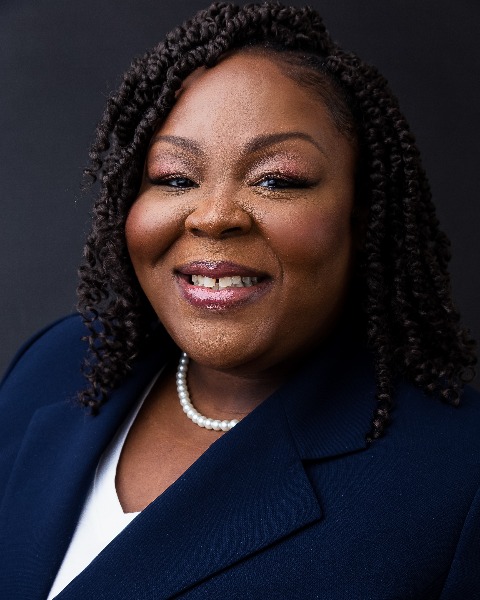University-Based Center
Fulfilling the Multi-Faceted Commitments of University-Based Evaluation Centers
-

Lori Wingate, PhD (she/her/hers)
Executive Director
Western Michigan University
Kalamazoo, Michigan, United States -

Brad Watts, PhD (he/him/his)
Assistant Director
The Evaluation Center
Kalamazoo, Michigan, United States -

Jessica Osborne, PhD
Principal Evaluation Associate
The Center for Research Evaluation, University of Mississippi, United States -

Erica Echols-Miller, PhD
Evaluation Manager
National Institute for STEM Evaluation & Research, United States
Presenter(s)
Disscussant(s)
Presenter(s)
Location: Room 205
Abstract Information: University-Based Evaluation Centers (UBCs) are a little like for-profit firms or consultancies and need to be managed efficiently by attending to the bottom line, recruiting and retaining qualified staff, and marketing their services. But UBCs aren’t just in the business of conducting evaluations for clients. Most UBCs engage students in hands-on learning. Some also engage in outreach and capacity building to support evaluation practice and use. UBCs may also engage in scholarship to advance the evaluation field. Additionally, while serving in the aforementioned roles, all UBCs must manage their work, staff, and finances in the context of larger educational institutions, which may present unique challenges and opportunities. In this session, a panel of representatives from three UBCs will share insights regarding three aspects of their work beyond the core task of conducting evaluations: business, education, and outreach. Each presenter will discuss one unique aspect relevant to their center, providing insight into how it provides value to the university, and lessons learned. After the panelists’ initial presentations, the discussant will guide a conversation on other activities common to UBCs, such as scholarship and community service, along with questions from the audience. The panel is intended for personnel at existing UBCs, those considering starting new centers, or others who wish to adopt aspects of these center operations in their own contexts. Attendees will benefit from experienced center leaders’ lessons learned and get inspired for their own forays into the kinds of work and ways of working at university-based evaluation centers.
Relevance Statement: University Based Centers (UBCs) inhabit a unique position in the evaluation field. Like small consulting firms, most UBCs focus on conducting fee-based evaluations to pay staff and ensure their organization’s sustainability. At the same time, UBCs are housed in large educational institutions with complex bureaucracies and student-focused missions. As a result, UBCs experience unique expectations and challenges from university administration, while also potentially benefiting from resources and supports unavailable in the private sector. This panel aims to help those currently managing UBCs, or considering starting a UBC, by sharing experiences and lessons learned from three well-established centers on topics of unique relevance to UBCs: creating educational experiences for students, creating outreach and capacity-building materials and activities to support evaluation practice, and managing business and financial operations within the constraints of a university funding model. Brief summaries of each discussion topic follow. In addition to the panelists’ presentations, the discussant will lead an interactive group conversation where the panelists will address other topics of relevance and address audience questions. Education: The responsibility to contribute to the field by providing hands-on student learning to undergraduate and graduate students is unique to UBCs. While simple in theory, the task of engaging students in evaluation projects can be tricky. Aligning student capacity to project needs requires organization, attention to detail, and determination. Through a combination of processes, CERE has found creative ways to engage students in hands-on evaluation, providing valuable learning experiences for students while supporting CERE-led evaluations. This session provides an opportunity for UBC staff to learn how to increase student opportunities, further supporting the field of evaluation. Outreach and Capacity-Building: Located in academia but focused on practice, UBCs are well-positioned to bridge the theory-practice gap by providing useful resources to support high-quality evaluation practice. However, finding ways to serve the field while balancing the demands of grant and contract work can be challenging. The Evaluation Center has a long history of supporting the field by providing open-access materials and activities by leveraging a mix of external and internal resources. In this portion of the panel presentation, we will share lessons and insights to help guide other UBCs who wish to expand the boundaries of their work to support evaluation practice more broadly. Business: UBCs must operate within the constraints of the university funding model, which can be complex and challenging. Strategies such as developing efficient budgeting and cost management systems, diversifying funding sources, leveraging university-provided resources, and collaborating with other departments and centers can help UBCs overcome these challenges and facilitate high-quality evaluations that are grounded in the latest research and best practices. By using budget forecasting, a center can anticipate potential financial challenges, prioritize its spending, and communicate its financial needs and priorities to stakeholders, such as university administrators. This portion of the panel will explore tools that can assist evaluators in creating budget forecasts to support hiring and contracting, facilitate grant management, and ensure long-term sustainability and success.
Presentations:
-
2:30 PM - 3:30 PM ETAdvancing Evaluation Through Outreach and Capacity Building
Presenter: Lori W. Wingate, PhD (she/her/hers) – Western Michigan University
-
2:30 PM - 3:30 PM ETDiscussion of Broad Issues Facing University-Based Centers
Presenter: Brad Watts, PhD (he/him/his) – The Evaluation Center
-
2:30 PM - 3:30 PM ETFollow the Money
Presenter: Erica Echols-Miller, PhD – National Institute for STEM Evaluation & Research
-
2:30 PM - 3:30 PM ETThe UBC's role in providing hands-on student learning
Presenter: Jessica Osborne, PhD – The Center for Research Evaluation, University of Mississippi
